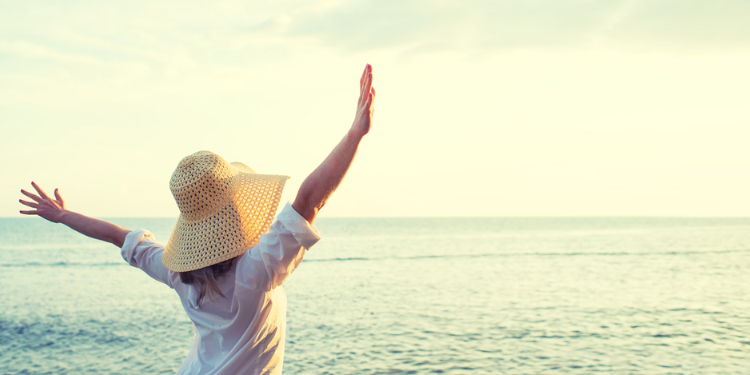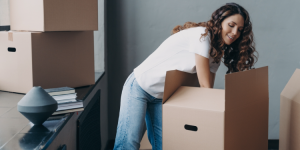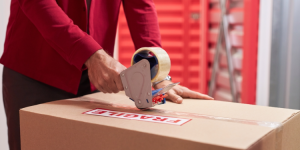
I have always been very thoughtful about the things I own, and how I organise them in my space — whether it’s the tiny studio in South Korea, the shared-flat in Ghana, or the two-floor house in Mauritius. I love change, and I see moving to a different country as an opportunity to reset my reality and rediscover myself; living abroad helps me look at things with fresh eyes and get rid of preconceptions. Packing is a big part of the whole moving process, and when you have to limit your belongings down to two suitcases, you reconsider the value of possessions. Here’s how I learned to put my life on the scale and hit the 23 kg target.
Keep the unique and special
My expat life began in 2007 when I left home for the first time to take a gap year in Cardiff, Wales. It was a smooth move, as I left my room at my parent's house untouched, and packed a year's worth of essentials. But when I moved for the second time to Brighton, England for my Master's degree, I somehow knew that was the beginning of a series of expatriations. Hence, during the winter break, I decided that there was no point for my parents to keep all these things, and I got rid of everything that didn't have any emotional, practical, or quality value. Notes and books from high school and university, fashion items that I didn't have the patience to wait for them to make a comeback (of course, they did but that's a different story), and decorative objects which I was either given or had spent money on were given away.
Get rid of duplicates
In general, I find emptying my space to have healing power; it's like a mental detox for a more organised and productive life. Becoming an immigrant at the age of four, I learned very soon that things aren't as important as carrying memories of your beloved people and your favourite places. But not everyone is as keen to stuff empty bags with their belongings and give them away. If you don't know where to start from, check for duplicates. For example, how many coffee cups do you have? How many white shirts do you need? Are you wearing all these socks or just the ones at the top drawer?
Create a memory box
Souvenirs from my travels and memorabilia items such as a shell from a summer holiday, a pack of letters from my pen friend, a dried flower from my first love, are my weakness when it comes to my efforts for minimal living. I cannot get rid of pieces which have good memories attached to them. So, I have created a memory box, where I store all mementoes — from maps and cinema tickets (I collect those) to my first teddy bear, diaries, and Polaroid pictures.
Go digital
One way to reduce your items without really getting rid of them is to digitalise them. For example, if you are a writer, and you have the habit of keeping a diary, try one of the many apps for digital journals — they are also safer as you can never lose them and you can double-lock them. If you have a big CDs and DVDs collection, transfer your music and movies to the cloud. I love my books and couldn't part with my library. However, it's been a few years that I am purchasing more e-books. Also, you can take pictures of notes or scan them to throw away hard copies. Without realising it, you are also becoming environmentally conscious and eco-friendly.
Dedicate yourself to a cause
Winston Churchill has said: “We make a living by what we get. We make a life by what we give.” Find a cause you believe in, whether it is a charity, a second-hand shop, or your neighbour's family to offer your belongings. It is a fact that with every bag of items you drop, you will feel more liberated and happier, as you let go of some things to be able to focus on those that matter. Trying to sell your items is an alternative, especially for expensive or big things such as furniture and kitchen appliances, but keep in mind that it can be a very time-consuming process. If you wish to put things up for sale, you should be prepared to spend time on taking pictures and posting the items, replying to enquiries, negotiating the prices, and organising the delivery.
Start packing early
If you are about to begin your expat life, and you see your move overseas as an excellent opportunity to become a minimalist, it is important to start organising your stuff early enough, so you don't feel overwhelmed. Remember, you already have a lot on your plate: sorting out all the formalities for your trip, bidding farewell to friends and family, organising your stay abroad, etc. So, start packing and disposing slowly, and at least three months in advance (if you are a beginner even sooner). Every time I come across an item I am not sure I want to keep, I ask myself whether it adds value to my life. Other questions to ask are: Is it usable? Is it in good condition? Have I used it in the past three to six months? I create three piles — one for items I want to keep, one for maybes, and one for nos. Every other day, you can go through the maybes, and hopefully, you will see this pile reducing, as the nos' increases.



















